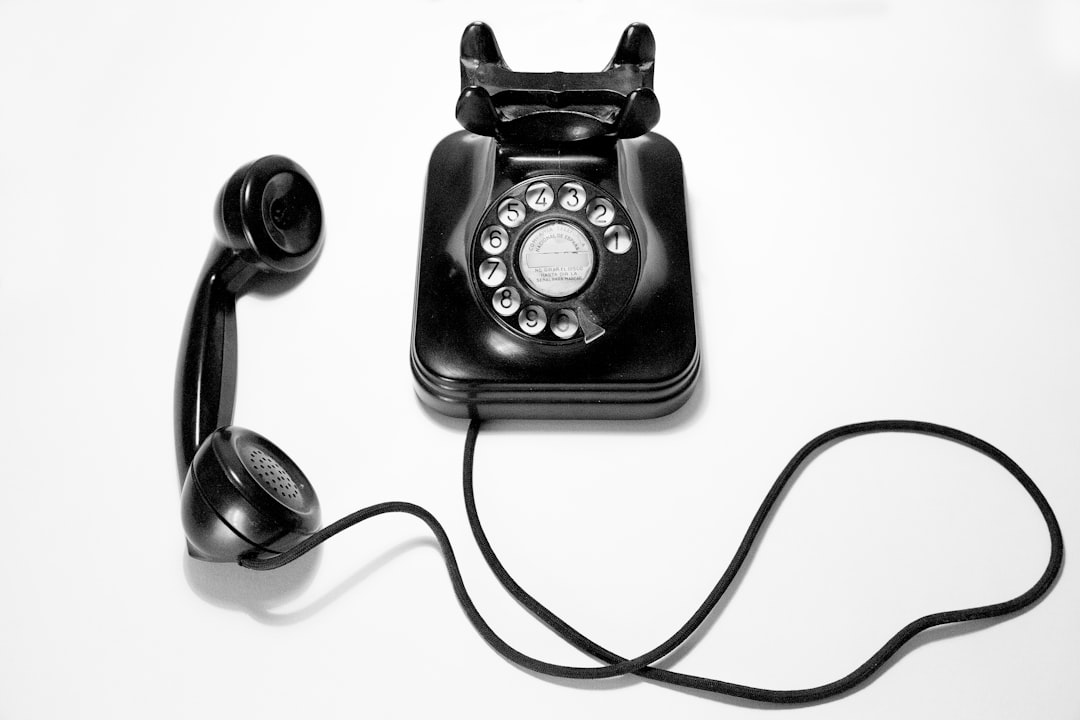In Illinois, unauthorized telemarketing calls, particularly from debt collectors, are regulated by the Telephone Consumer Protection Act (TCPA) and considered illegal under the state's Consumer Fraud Act. Consumers who receive unsolicited calls, including wrong-number debt collection robocalls, can seek guidance and legal action from specialized law firms or attorneys focusing on consumer protection and TCPA violations. These professionals can help stop harassing calls, file complaints, pursue compensation for emotional distress and financial losses, and represent clients in lawsuits against offending entities. Key terms include specific lawyer types and locations like debt collector calling wrong number Lawyer IL and robocall lawyers IL.
Unwanted telemarketing calls, especially from debt collectors targeting the wrong numbers, are a prevalent and frustrating issue in Illinois. If you’ve been on the receiving end of these unwanted robocalls, you may be entitled to compensation under state laws designed to protect consumers. Understanding your rights and knowing how to seek damages is crucial. This guide explores Illinois’s robocall regulations, offering insights into navigating legal actions against debt collectors calling wrong numbers, with a focus on finding the right lawyer for your case in IL.
- Understanding Unauthorized Telemarketing Calls in Illinois
- Legal Rights Against Debt Collectors Calling Wrong Numbers
- Navigating Robocall Laws in Illinois: Key Provisions
- Choosing the Right Lawyer for Your Case in IL
- Building a Strong Case Against Debt Collectors
- Steps to Take After Receiving Unwanted Calls from Debtors
Understanding Unauthorized Telemarketing Calls in Illinois
In Illinois, unauthorized telemarketing calls, often referred to as robocalls, are a common nuisance that many residents face daily. These automated or pre-recorded messages, typically delivered via phone, can be from various sources, including debt collectors, financial institutions, or even scammers trying to gather personal information. When a debt collector calling wrong number occurs, it’s important to understand your rights and the legal options available. A debt collector calling wrong number lawyer IL, for instance, can guide individuals on how to deal with such intrusions.
Illinois has strict regulations in place to protect consumers from unfair telemarketing practices. The Illinois Consumer Fraud Act prohibits misrepresentations or deceptive acts in business transactions, including unauthorized phone marketing. If you’ve received a robocall from a debt collector or any other entity, and it was not initiated by you or with your consent, you may have grounds for legal action. Robocall attorneys IL and law firms specializing in this area can help victims understand their rights, file complaints, and potentially seek damages for the intrusion into their privacy.
Legal Rights Against Debt Collectors Calling Wrong Numbers
If a debt collector or collection agency makes unwanted calls to a wrong number in Illinois, individuals have legal rights and options available to them. According to state laws, including the Telephone Consumer Protection Act (TCPA), it is illegal for debt collectors to make robocalls or use automated dialing systems without prior express consent. If you’ve been a victim of such unauthorized calls, consulting a debt collector calling wrong number lawyer IL can be beneficial. These legal professionals specialize in consumer protection and can help navigate the complexities of TCPA violations.
An attorney for robocall IL will inform you about your rights to stop these calls, seek compensation for emotional distress or any financial losses incurred, and even file a lawsuit against the offending debt collector or collection agency. Many such law firms offer free consultations, during which they’ll review your case, explain your options, and guide you through the legal process if necessary. Robocall lawyers IL and robocall attorneys IL are well-versed in dealing with these issues and can ensure that your rights as a consumer are protected.
Navigating Robocall Laws in Illinois: Key Provisions
In Illinois, navigating the maze of robocall laws can be complex, but there are specific provisions in place to protect consumers from unwanted telemarketing calls, especially when a debt collector is involved and calling the wrong number. The Telephone Consumer Protection Act (TCPA) restricts automated phone calls for telemarketing purposes without prior express consent. This includes calls made by debt collectors, who must obtain explicit permission before utilizing prerecorded messages or automatic dialing systems.
A key provision in Illinois law states that if a debt collector makes a call using an automatic dialing system and the consumer has not provided written consent, it can result in significant damages for the recipient. Consumers have the right to sue for actual damages or up to $500 per violation, whichever is greater. With the assistance of a lawyer specializing in robocall cases (debt collector calling wrong number lawyer IL, robocall attorneys IL), consumers can hold debt collectors accountable and seek compensation for their troubles. This includes not only financial relief but also court orders stopping the unwanted calls.
Choosing the Right Lawyer for Your Case in IL
When pursuing legal action against a debt collector for making unauthorized telemarketing calls in Illinois, selecting the right lawyer is a crucial step. You’ll want an attorney who specializes in consumer protection law and has experience handling cases involving debt collectors calling wrong numbers. Look for a law firm that focuses on robocall litigation to ensure they stay updated with the latest legal developments and have a proven track record of success.
In Illinois, many law firms offer consultations to discuss your case, so take advantage of this opportunity to gauge their expertise and approach. A good lawyer will not only guide you through the legal process but also advocate for your rights, ensuring you receive fair compensation for the inconvenience and stress caused by these unwanted calls. They should be knowledgeable about state laws regarding telemarketing practices and have a deep understanding of how to navigate the legal system to get the best outcome for your specific case.
Building a Strong Case Against Debt Collectors
When building a case against a debt collector for calling the wrong number in Illinois, having strong evidence is crucial. Start by documenting every interaction—note the date, time, and content of each call. Save any recordings or texts as these can serve as irrefutable proof that the debt collector was contacting an incorrect number. It’s also vital to keep detailed records of any actions taken in response to the calls, such as blocking numbers or informing the collector of the mistake.
Consider consulting a lawyer specializing in robocall cases, like those at reputable law firms across Illinois. A debt collector calling wrong number lawyer can guide you on legal options available under the Telephone Consumer Protection Act (TCPA). They can assist in drafting cease and desist letters, negotiating settlements, or even filing lawsuits if necessary to stop the unwanted calls and secure damages for any distress caused.
Steps to Take After Receiving Unwanted Calls from Debtors
After receiving unwanted calls from a debt collector who has dialed the wrong number, several steps can help you navigate this frustrating situation effectively. First, document every interaction by noting down the caller’s information, including their name (if known), phone number, and the date and time of each call. This detailed record will be invaluable if you decide to take legal action later.
Next, inform the debt collector that they have called the wrong number in a polite but firm manner. You can say something like, “I believe you have the wrong number. I am not the person you are trying to reach.” If the calls persist despite your clarification, consider seeking legal advice from a lawyer for robocall or an attorney specializing in telemarketing laws in Illinois. They can guide you on the best course of action, which may include filing a complaint with the Federal Trade Commission (FTC) or taking further legal measures to stop these unwanted calls.






